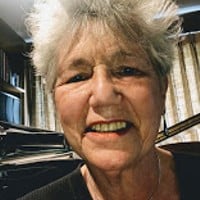For aspiring musical theater performers, the expectation — and reality — is that you have to have it all: a great voice, dancing skills and acting chops.
Opera singers increasingly face the same demands from audiences who want nothing less than performances that are compelling dramatically as well as musically.
There’s little argument that great opera can’t exist without great voices, and the challenge for future opera singers is learning the acting skills to bolster their vocal performance — creating a love scene that is more than two people belting out timeless melodies, looking emotionally blank.
Steven Goldstein is uniquely qualified to take on the challenge. The University of Cincinnati College-Conservatory of Music’s recently appointed Weinberger Chair of Acting for the Lyric Theatre has impressive stage, film and opera credits, appearing in productions staged by David Mamet, William H. Macy and renowned opera director Francesca Zambello.
Along with CCM’s opera department chair Robin Guarino, Goldstein brings a breadth of experience along with New York cred. How did CCM get so lucky?
Timing, for one thing. If the work wasn’t steady, it was solid. But Goldstein acknowledges what every singer, actor and dancer knows, pre-conservatory: “It’s a difficult career. I was at a point in my life where I was trying to expand my own career and, luckily, Robin Guarino knew my work. When the job opened up she kept telling me I’d be perfect for it.”
Going through the interview process, Goldstein saw the opportunities “to direct, to teach acting for a singer who acts or for an actor who sings, those were the perfect storm of my interests.”
Goldstein works with students in the opera department’s graduate and artist diploma programs and with musical theatre students. He taught for the Atlantic Theatre Company, a company he co-founded after graduating from NYU, but the CCM appointment is his first university teaching position and his first experience working with opera singers.
And what was his first impression of students far from the mecca of Broadway and larger drama and opera programs?
“I’m blown away by their talent and their commitment,” he says. “At the beginning of the quarter, the students staged a couple of musical numbers, one of them from Mary Poppins. It’s a full-out extravaganza and they were phenomenal.”
Goldstein’s directorial debut later in the quarter with Michael John LaChiusa’s Hello Again was “fantastic,” he says. He credits a process inspired by one of his NYU mentors for the performers’ success and his own comfort level: “Set up your rehearsal room as a great place to be. If everyone’s glad to be there, they’ll feel safe to explore and to have fun.”
Opera singers, as he freely admits, are a bit more challenging. “The seniors and the Master’s students are able to soak up more in terms of language and their ability to use it. AD (Artist Diploma) students are more set in their ways. That’s understandable — they’re already set on their career paths. I’m there to give them another tool.”
The techniques Goldstein brings to his students are grounded in his experiences with the Atlantic Theatre Company and especially with Mamet. Honesty is a ground rule along with the promise of a supportive atmosphere. The easiest way to define it, according to Goldstein, is “no bullshit. Tell the truth.”
Opera singers may turn to video and sound recordings as a jumping off point but Goldstein wants them “to find out what’s really going on deep down and do your performance, the one that no one else can do. The magic is that the audience will see you as the character and you are bringing the truth of what you know, not your ideas of what someone else did.”
Sometimes, he adds with a rueful laugh, knowing nothing about it can be more helpful.
Goldstein’s first production will be Strauss’s “Die Fledermaus,” scheduled for CCM’s spring quarter as part of the Studio Series. He’s circumspect about ambitions for future seasons. He’s looking forward to more directing opportunities and working with departmental curriculum that will have its own challenges as UC switches to semesters. He wants to gauge where his students are in order to determine directions for next year, a time, he says, when he can “calm down a little.”
Aside from adapting to a university setting, a new job, new colleagues and students, Goldstein is adjusting to Cincinnati, not an easy task for a native New Yorker used to walking everywhere and finding necessities within a couple of blocks. On the other hand, he and his spouse, Rabbi Steven Greenberg, are purchasing a home in University Heights — “something we could never afford to do in Manhattan.”
Cincinnati’s conservative reputation proved less daunting in reality.
“We were warned about the city by friends who lived here and left (after the state issue outlawing same-sex marriage was passed in 2004),” he says. But he says that colleagues, students and community members he’s met in rare moments of spare time are sources of encouragement.
So when I ask again what’s been the biggest surprise in his first months here, he responds with a broad smile and warm laughter. “I’m actually having a good time.”
For info on CCM’s upcoming preformances, go to www.ccm.uc.edu






